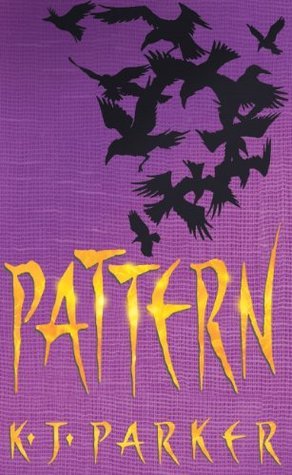What do you think?
Rate this book


448 pages, Kindle Edition
First published May 16, 2002
The most enjoyable aspect of Parker's works, I think, is the cynically realistic tone he maintains throughout his novels, a pessimistic, or realistic perhaps, take on life which grounds his characters in a more believable world than the typical fantasy heroes and heroines of the genre. There really wasn't a poor quality sentence in the whole book (and in a side note, it was incredibly well proof read, with only a couple of missing speech marks to be seen).
It's surprisingly difficult to review this book, because there is so much to commend it which is hard to describe. As this is the second book in a trilogy, I would assume that you have read Shadow, and therefore are familiar with what made Shadow an excellent book; all that can easily be said from that basis is that Pattern keeps up that supreme quality, but moves both Poldarn and the plot forward. It gets a little complicated in the sometimes (intentionally) conflicting dreams and memories he has, and had me keeping some notes to stay on track with the revelations...all to little avail because there is a magnificently surprising twist in the final pages.
To bring that rambling to an end - buy this book. It deserves attention and acclaim, and I look forward to both the final instalment and K.J. Parker gaining the true status as a superb fantasy writer that he has proven he richly deserves with both Shadow and Pattern.